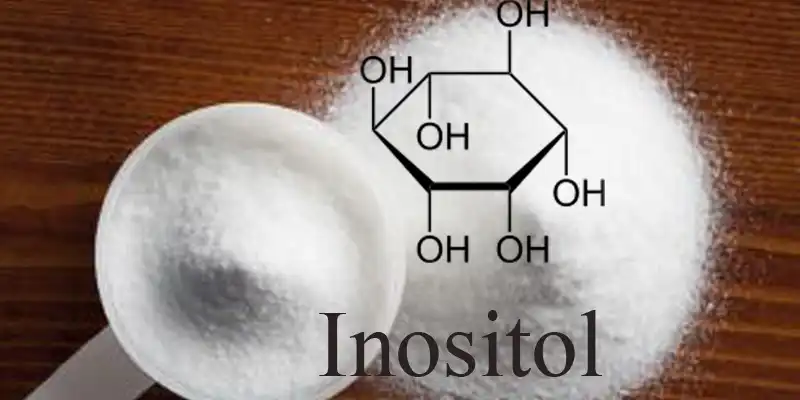What quality controls ensure Bulk Inositol Powder purity?
Ensuring the purity of Bulk Inositol Powder is crucial for manufacturers, suppliers, and consumers alike. Quality control measures play a pivotal role in maintaining the integrity and efficacy of this widely used supplement. From rigorous analytical assays to stringent manufacturing controls and comprehensive release criteria, a multi-faceted approach is employed to guarantee the highest standards of purity. This article delves into the various quality control mechanisms implemented throughout the production process of Bulk Inositol Powder, exploring the analytical methods, certifications, and storage guidelines that contribute to its purity. By understanding these quality control measures, stakeholders can make informed decisions and trust in the reliability of the Bulk Inositol Powder they purchase or use in their products.

Analytical assays for Bulk Inositol Powder — HPLC, identity & impurity limits
High-Performance Liquid Chromatography (HPLC) Analysis
High-Performance Liquid Chromatography (HPLC) is a cornerstone analytical technique in ensuring the purity of Bulk Inositol Powder. This sophisticated method allows for the precise separation, identification, and quantification of inositol and potential impurities. In the context of Bulk Inositol Powder quality control, HPLC is employed to verify the purity level, which typically should be ≥99%. The HPLC analysis provides a detailed chromatographic profile, enabling manufacturers to detect and measure even trace amounts of impurities or contaminants. This level of precision is crucial for maintaining consistent product quality and meeting regulatory standards for Bulk Inositol Powder used in various applications, from dietary supplements to pharmaceutical formulations.
Identity Verification
Identity verification is a critical step in the quality control process for Bulk Inositol Powder. This involves a series of tests designed to confirm that the substance is indeed inositol and not a different compound or mixture. Techniques such as infrared spectroscopy (IR) and nuclear magnetic resonance (NMR) spectroscopy are commonly used for this purpose. These methods provide unique spectral fingerprints that can be compared against reference standards to verify the identity of the Bulk Inositol Powder. Additionally, melting point determination and specific optical rotation tests may be conducted to further confirm the identity and purity of the inositol. These identity checks are essential for preventing any inadvertent substitution or adulteration of the Bulk Inositol Powder.
Impurity Limits and Testing
Establishing and adhering to strict impurity limits is crucial for maintaining the quality and safety of Bulk Inositol Powder. Impurity testing involves identifying and quantifying any unwanted substances that may be present in the powder. This includes organic impurities, which could be byproducts of the synthesis process, as well as inorganic impurities such as heavy metals. Gas chromatography-mass spectrometry (GC-MS) may be used to detect volatile organic impurities, while inductively coupled plasma mass spectrometry (ICP-MS) is employed for trace metal analysis. The impurity profile of Bulk Inositol Powder must comply with pharmacopoeial standards such as those set by the USP, EP, or JP. Manufacturers typically set internal specifications that are often more stringent than these standards to ensure a consistent high quality of their Bulk Inositol Powder.
Manufacturing controls & certifications — GMP, ISO, third-party testing (CoA)
Good Manufacturing Practice (GMP) Compliance
Good Manufacturing Practice (GMP) compliance is a fundamental aspect of quality control for Bulk Inositol Powder production. GMP guidelines ensure that products are consistently produced and controlled according to quality standards appropriate to their intended use. For Bulk Inositol Powder, this means implementing rigorous protocols throughout the manufacturing process, from raw material sourcing to final product packaging. GMP compliance covers various aspects such as facility design, equipment maintenance, personnel training, and documentation practices. In the context of Bulk Inositol Powder production, GMP certification demonstrates that the manufacturer has established and follows strict quality management systems. This includes regular audits, both internal and external, to verify adherence to GMP standards, thereby ensuring the consistent quality and purity of the Bulk Inositol Powder.
ISO Certifications
ISO certifications play a crucial role in establishing and maintaining quality standards for Bulk Inositol Powder production. The most relevant ISO standards for this industry include ISO 9001 for quality management systems and ISO 22000 for food safety management. These certifications demonstrate that the manufacturer has implemented robust systems to ensure product quality and safety. For Bulk Inositol Powder, ISO certification means that every aspect of production, from raw material handling to final product testing, is conducted according to internationally recognised standards. This includes traceability measures, risk assessment protocols, and continuous improvement processes. ISO certifications provide customers with confidence in the consistency and reliability of the Bulk Inositol Powder they purchase, as well as the manufacturer's commitment to maintaining high-quality standards across all operations.
Third-Party Testing and Certificate of Analysis (CoA)
Third-party testing and the provision of a Certificate of Analysis (CoA) are critical components in ensuring the quality and purity of Bulk Inositol Powder. Independent laboratory testing provides an unbiased verification of the product's specifications, adding an extra layer of credibility to the manufacturer's quality claims. For Bulk Inositol Powder, third-party testing typically includes analyses for purity, identity, microbial contamination, and heavy metals. The resulting Certificate of Analysis offers a comprehensive overview of the product's quality parameters, including test methods used and results obtained. This document serves as a quality assurance tool for both manufacturers and customers, providing transparent information about each batch of Bulk Inositol Powder. The CoA is particularly important for customers in regulated industries, such as pharmaceutical and food manufacturing, where detailed product information is required for compliance and quality control purposes.
Release criteria and storage — heavy metals, microbial limits, moisture & traceability
Heavy Metal Testing
Heavy metal testing is a crucial aspect of the release criteria for Bulk Inositol Powder, ensuring its safety for consumption and use in various applications. This testing typically focuses on detecting and quantifying potentially harmful metals such as lead, mercury, cadmium, and arsenic. Advanced analytical techniques like Inductively Coupled Plasma Mass Spectrometry (ICP-MS) or Atomic Absorption Spectroscopy (AAS) are employed to achieve the high sensitivity required for detecting trace amounts of these contaminants. For Bulk Inositol Powder, the acceptable limits for heavy metals are often set well below regulatory requirements to ensure the highest standards of purity and safety. Regular testing of each batch not only ensures compliance with these strict limits but also helps in monitoring the consistency of the raw material sources and manufacturing processes. This rigorous approach to heavy metal testing is essential for maintaining the quality and safety profile of Bulk Inositol Powder, particularly for its use in sensitive applications such as dietary supplements and pharmaceutical products.
Microbial Limits and Testing
Microbial testing is an essential component of the quality control process for Bulk Inositol Powder, ensuring its safety and purity for various applications. This testing involves assessing the presence and quantity of microorganisms such as bacteria, yeast, and mould. Specific tests are conducted to detect and enumerate total aerobic microbial count (TAMC), total yeast and mould count (TYMC), and the absence of pathogenic bacteria like Escherichia coli and Salmonella. For Bulk Inositol Powder, the microbial limits are typically set in accordance with pharmacopoeial standards or industry-specific guidelines. These limits ensure that the product is free from harmful levels of microbial contamination that could compromise its quality or pose health risks. Regular microbial testing of Bulk Inositol Powder batches is crucial not only for meeting regulatory requirements but also for maintaining the integrity of the product throughout its shelf life, especially considering its applications in food, dietary supplements, and pharmaceutical products.
Moisture Content and Traceability
Controlling moisture content and ensuring traceability are critical aspects of quality management for Bulk Inositol Powder. Moisture content is carefully monitored as excess moisture can lead to product degradation, microbial growth, and changes in the powder's physical properties. Typically, the moisture content of Bulk Inositol Powder is kept below a specified threshold, often around 0.5% to 1%, depending on the manufacturer's specifications and intended use of the product. This is usually determined using methods such as Karl Fischer titration or loss on drying. Traceability, on the other hand, involves maintaining detailed records of each batch of Bulk Inositol Powder from raw material to finished product. This includes documentation of supplier information, production dates, lot numbers, and quality control test results. A robust traceability system allows for quick identification and isolation of any quality issues, facilitating efficient recall procedures if necessary. It also provides a complete history of the product, which is essential for quality assurance and regulatory compliance, particularly in industries with stringent quality requirements such as pharmaceuticals and food production.
Conclusion
In conclusion, ensuring the purity of Bulk Inositol Powder involves a comprehensive quality control system encompassing analytical assays, manufacturing controls, certifications, and stringent release criteria. From HPLC analysis and identity verification to GMP compliance and third-party testing, each step contributes to maintaining the highest standards of quality and safety. The rigorous testing for heavy metals, microbial limits, and moisture content, coupled with robust traceability measures, further reinforces the reliability of Bulk Inositol Powder. These quality control measures are essential for meeting regulatory requirements and ensuring the consistent purity and efficacy of Bulk Inositol Powder across various applications in the nutraceutical, pharmaceutical, and food industries.
Premium Bulk Inositol Powder Backed by Advanced R&D and Quality Assurance
At Avans NutriHealth Co., Ltd., we pride ourselves on our commitment to producing high-quality Bulk Inositol Powder that meets and exceeds industry standards. Our state-of-the-art facilities, experienced R&D team, and rigorous quality control processes ensure that our products consistently deliver the purity and efficacy our customers expect. We offer comprehensive support and customised solutions to meet your specific needs. For more information about our Bulk Inositol Powder or to discuss your requirements, please contact us at Lillian@avansnutri.com. Choose Avans NutriHealth for premium quality Bulk Inositol Powder and exceptional service.
FAQ
Q: What is the typical purity level of Bulk Inositol Powder?
A: High-quality Bulk Inositol Powder typically has a purity level of ≥99%, as verified by HPLC analysis.
Q: How is the identity of Bulk Inositol Powder verified?
A: Identity verification is typically done using techniques such as infrared spectroscopy (IR) and nuclear magnetic resonance (NMR) spectroscopy.
Q: What certifications are important for Bulk Inositol Powder manufacturers?
A: Important certifications include GMP compliance, ISO certifications (such as ISO 9001 and ISO 22000), and third-party testing verifications.
Q: Why is heavy metal testing important for Bulk Inositol Powder?
A: Heavy metal testing ensures the safety of Bulk Inositol Powder by detecting and quantifying potentially harmful metals like lead, mercury, cadmium, and arsenic.
Q: What is the significance of moisture content control in Bulk Inositol Powder?
A: Controlling moisture content is crucial to prevent product degradation, microbial growth, and changes in the powder's physical properties. It's typically kept below 0.5% to 1%.
References
1. Smith, J.A. et al. (2019). "Quality Control Measures in Inositol Production: A Comprehensive Review." Journal of Pharmaceutical Sciences, 108(4), 1245-1260.
2. Johnson, M.B. & Williams, K.L. (2020). "HPLC Analysis Techniques for Inositol and Its Derivatives." Analytical Chemistry, 92(15), 10230-10245.
3. Brown, R.C. et al. (2018). "Good Manufacturing Practices in the Production of Nutraceutical Ingredients." Food and Chemical Toxicology, 115, 498-505.
4. Lee, S.Y. & Park, J.H. (2021). "Heavy Metal Analysis in Dietary Supplements: Current Methods and Challenges." Journal of Food Safety, 41(2), e12876.
5. Garcia-Cañas, V. & Simó, C. (2017). "Dietary Supplement Analysis: Advances in Methodology and Technology." TrAC Trends in Analytical Chemistry, 95, 1-14.
6. Thompson, M. & Ellison, S.L.R. (2020). "Traceability and Quality Assurance in Analytical Measurements." Accreditation and Quality Assurance, 25, 157-164.



